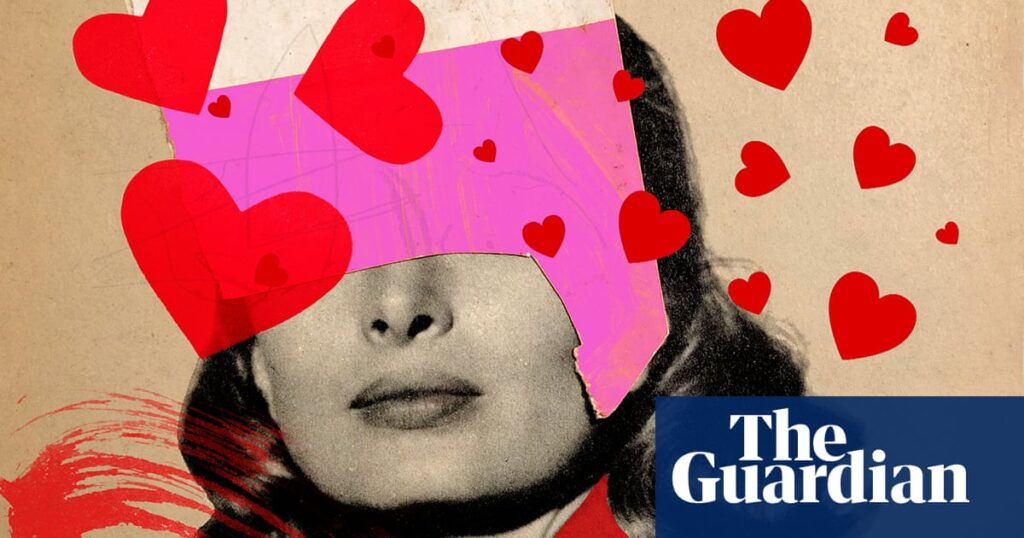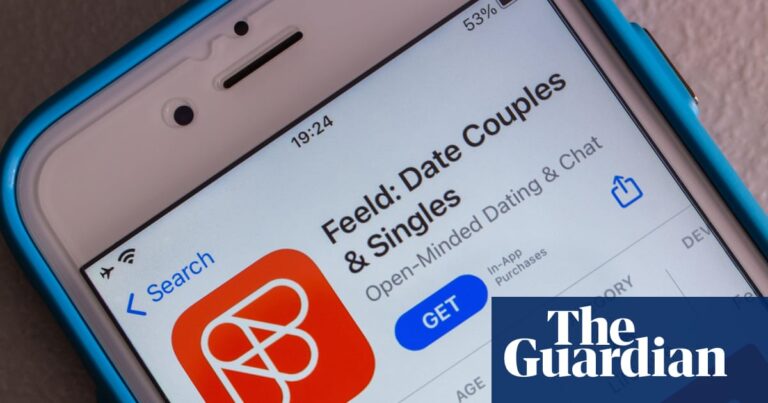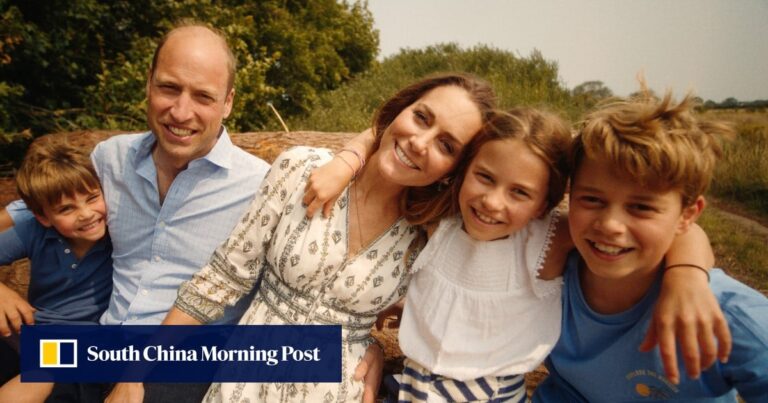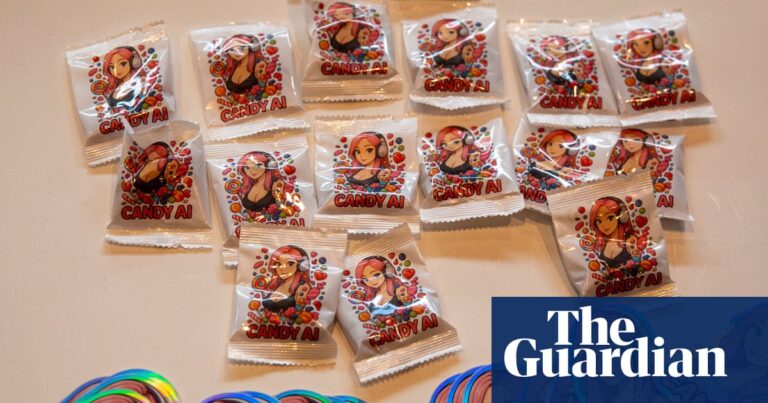
Using dating apps to find love is commonplace these days – and yet, for many singles, it has become a double-edged sword. The perks of having a never-ending supply of potential matches at your fingertips are obvious – but the appeal of connecting and meeting with strangers is time-limited. It can be especially frustrating to feel as if you’re stuck at the swiping stage.
In 2023, US jeweller Shane Company found that the average American will spend about eight months using dating apps – swiping on around 3,960 profiles – before finding a partner. But for chronic daters, those numbers will probably sound optimistic; speaking to friends and colleagues, it’s not uncommon to spend years “on the apps” without significant romantic success. The “download-delete-repeat” cycle can be disheartening and dating-app fatigue is growing; last year’s Online Nation report from Ofcom showed that app use had declined significantly, with a drop of nearly 16% in the use of the 10 most popular dating apps. No wonder Meta this week announced that it is bringing an AI assistant to Facebook Datingas well as Meet Cute, a new “surprise match” feature designed to help users “avoid swipe fatigue”.
But it doesn’t have to be this way. According to Pew Research Centeraround 10% of heterosexual people and 24% of LGBTQ+ people do meet their long-term partner through a dating site or app – and some seem to do it without dedicating huge amounts of time to fruitless swiping. Is it simply a case of the stars swiftly aligning – or is there a secret to their success?
Liz, 28, from Nottingham, downloaded Bumble on a Wednesday and matched with her now-husband the same day. They had their first date on the Friday, and have been together for eight years. Her advice for not getting stuck on the apps? Delete them.
“If you meet someone you have a connection with, delete the apps and give that person your full attention – you aren’t on a dating show!” she says. “After the first date, I knew I really liked him, and I thought: ‘I need to focus on one person at a time.’ You can always go back to the apps later if it doesn’t work out.”
She also found that not everyone she had swiped right on – to indicate that she was interested – would look at the app every day: “So you get this delayed response with matches. I found the constant pings on my phone really distracting – too many people, too many conversations.”
It can be tempting to keep your options open, and speaking to multiple matches is generally deemed acceptable in the early stages of dating. But Liz and her partner deleted Bumble within a week of meeting and found that prioritising one person was a better way to get to know one another.
Another way to avoid the so-called paradox of choice is to intentionally narrow your dating pool. Joseph, 42, from Liverpool, is an advocate for finding your niche: he met his partner after just a couple of months of using vegan and vegetarian dating app Grazer. They got engaged 10 months later, and have now been married for six years. They also have two (vegan) children together.
“It filtered out what I knew I didn’t want,” he says. “It was more just knowing that everyone was on the same wavelength; that took a lot of the stress away. No awkward conversation about being vegan, and no tough arguments in five years’ time about whether we’re going to raise our children vegan or not. There weren’t a lot of people on Grazer, especially in Liverpool, because it was quite new, but it was quality over quantity.”
It’s important to know what you’re looking for, says couples therapist and dating coach Shan Merchant“whether that’s someone who likes exercise, or enjoys being in nature or likes creativity”. Her advice is to use a mainstream app that has a lot of people signed up, “and also go for more of a specialist app, so you’re not limiting your focus too much”.
Of course, a good way to find someone whose interests and values align with your own is to be completely honest when creating your profile, whichever app you choose.
“My strategy was that I almost wanted to put people off, so that I would only end up meeting with people who were genuinely interested,” says Hannah, 39, from Leeds, who has now been with her partner for seven years. She was on Bumble for around a month before they met, and had been on dates with just two other people from the app.
“I had a theory about being tactical with my photos,” says Hannah. “I wanted them to be reflective of me in real life. My first photo was one where I had my hair done and my makeup on and I thought I looked good, but immediately my second photo was me in the garden, no makeup, just a casual day. Loads of men have all their photos of them doing sport – I don’t have anything against sport, but you sort of think, is that all they do? A lack of variety of photos was definitely something that made me swipe past people – you want to know what the rest of their life looks like.”
While many of the people I spoke to cited the fact that they took dating seriously as the key to their app-based success, Hannah believes that, for her, it was almost the opposite. She’d recently moved back to the north of England after 10 years in London; it was more that she wanted to meet new people and explore the local area.
“I think that mindset made a big difference – I wasn’t going with a checklist,” she says. “It helped me meet someone good.” It’s important, she adds, “to try to ignore preconceptions and be open about who you meet”.
While theories about how you can “manifest” the perfect partner have gained traction in recent years, Merchant suggests there are other, more practical, ways in which your frame of mind can affect your search for love.
“Keep your energy up and only use apps when you’re feeling good – if you’re feeling tired or stressed, or hungover or low, I wouldn’t recommend going on a dating app, because that’s going to be the filter through which you see people,” she says. “A lot of people struggle to keep a positive attitude when dating – but I think that’s the biggest thing when it comes to dating app success.”
For Nicholas, 69, from Chichester, it was the pandemic that prompted him to be more proactive about dating – something he believes was intrinsic to his positive experience. He connected with his partner within a week of signing up to the now defunct Guardian Soulmates; they’ve been in a relationship for more than five years, living together since February 2022.
“I was apprehensive but knew I had to bite the bullet,” he says. “Have a conversation with yourself as to whether you actually want to make it happen, or whether you want an excuse as to why it hasn’t happened. Show why you would be a good companion. Be willing to go beyond your comfort zone. If you’ve put a profile up, you’ve got to be looking and responding to people.”
Even if not every interaction goes well, “you’re getting practice in how the dynamics work,” says Nicholas. He suggests Romeoalso known as PlanetRomeo, as a good alternative for LGBTQ+ people looking for relationships rather than hookups.
Liz also sees how, for some people, dating apps themselves can become part of the problem, rather than the solution. “I love my friends dearly, but I’ve watched them on the apps be like: ‘I’ve really enjoyed getting all these Likes but I’m never going to message a single one of them.’ There’s a sense that, because the other person is just a digital image on a screen, their feelings don’t matter.” If you’re genuinely keen to meet someone, her advice is to remember that profiles are real people: “Don’t mislead anyone, ghost them or stand them up.”
Tinder may have gained a particularly bad reputation for such practices in recent years, but Dan, 45, from the Netherlands, connected with his now-wife about two weeks after installing the app. They’ve been in a relationship for 10 years and have a son together. For him, the key was making sure he stood out.
“I’ve heard people often say I come across as incredibly boring from a distance,” he says. “Suffice to say, I’m never going to seduce anyone with my gorgeous looks or flamboyant style. I’m not rich or influential either. The good thing about dating apps was that they allowed me to immediately start a conversation, which plays to my strong points.” When messaging someone, he would always try to ask a question or make a joke about something on their profile, to show that he had read it. “It didn’t always work, but sometimes it did.”
Once on a date, Dan was similarly keen to make an impression, and brought small, thoughtful gifts, to act as ice-breakers. “On the first date with my wife, I brought her a giftwrapped bar of mint chocolate, after she’d mentioned she hated that flavour,” he says. “Just after unwrapping, while she was clearly trying to decide whether to be offended or pretend to be grateful, I mischievously handed her another chocolate bar – this time her favourite flavour.” Again, it showed that he had been paying attention.
“Don’t be afraid of rejection,” he advises. “I was rejected for wearing clothes that weren’t sufficiently hip, which was a good call on that woman’s part: if that’s important to you, I’m not your man. I was rejected for ordering a non-alcoholic drink on another first date. Again, a good call: I’d never be the booze buddy she hoped for. And I’m sure I’ve been rejected many times by women with a different sense of humour to me – for which I’m thankful, because it gave me a chance to keep looking until I found someone who, after 10 years, still chuckles at my dad jokes.”
Fear of rejection can certainly play a big role in why so many singles use dating apps intermittently and with caution – which can often prolong their search. “A lot of people aren’t willing to be rejected,” says Merchant, “and when you’re on a dating app, you get rejected a lot, but you’re also rejecting a lot.” People take rejection personally, she says, and then they give up. “I feel sad when people do that because I know that if they remain positive, eventually, everyone meets someone – that’s what I see.”
As is so often the case, the secret to dating app success may be a side order of serendipity. “I personally think that there’s a lot of luck involved,” says Merchant. “Make sure you spend time with people who talk positively about dating – people get very jaded but it’s important not to expose yourself to that. If you feel yourself getting burnt out, come off the apps and come back when your energy is stronger.”
Even those who seem to have been struck by Cupid’s bow almost instantaneously agree that taking a break can be beneficial. “You can get into a rut of seeing the same faces,” says Joseph. “If you take a step back and give it a few months, you’ll see new people and work out what you’re actually after, rather than chasing something just for the sake of it.



